As we all know, the journey to becoming a top-notch producer can be as exciting as it is challenging.
Whether you’re a complete beginner or a seasoned pro, there’s always more to learn in the ever-evolving world of music production.
That’s where Music Production Courses come in.
They’re a crucial stepping stone on the path to unlocking your full potential.
In this epic guide, we’re diving deep into the world of online music production courses, exploring the good, the bad, and the ugly.
Together, we’ll be uncovering:
- Comprehensive Course Breakdowns ✓
- Tips & Guidance To Help Navigate You ✓
- Expert Insights ✓
- Pros & Cons Of Music Production Courses ✓
- The Top Music Production Course of 2023 ✓
So, buckle up and get ready for a wild ride through the vast universe of Music Production Courses.
Table of Contents
- The Advantages of Online Learning Platforms
- 10 Things To Consider Before Choosing A Music Production Course
- Choosing A Music Theory Course
- Music Theory Courses: Top Picks
- Music Composition Courses
- Best Online Courses for Music Composition
- Music Industry & Music Business Courses
- Top Music Business Courses
- Sound Design and Sound Engineering Courses
- Courses For Sound Design & Sound Engineering
- Electronic Music Production Courses
- Best Online Courses for Electronic Music Production
- Mixing & Audio Production Courses
- Audio Production Software
- Best Online Courses for Audio Mixing & Production
- Hip-Hop Music Production Courses
- Best Online Courses for Hip-Hop Production
- Learning from Industry Professionals: The Value of Expert Guidance
- Top Online Courses Taught by Industry Professionals
- The Best Online Music Production Course of 2023: Unison Beatmaking Secrets
- Pros & Cons of Online Music Production Courses
- Final Thoughts
The Advantages of Online Learning Platforms
Online music production platforms have revolutionized the way we access education. For music producers like us, this means unprecedented flexibility and convenience.
You can learn at your own pace, from the comfort of your own home studio, and often at a fraction of the cost of traditional, in-person classes.
Plus, you have the ability to connect with fellow students and instructors from around the world, broadening your network and perspective.
The online format is perfect for exploring various courses and finding the right fit for your needs. You can access countless resources, including video lectures, interactive assignments, and live workshops.
The close knit online community aspect also enables you to share your work, receive feedback, and collaborate with fellow producers.
10 Things To Consider Before Choosing A Music Production Course
Before you choose a music production course, there are things to consider so you’ll get the best possible match for your unique needs and requirements.
- Course Objectives
Ensure the course aligns with your goals and interests, whether it’s learning specific production techniques or mastering a particular genre.
- Instructor’s Experience
Choose a course led by an experienced instructor with a solid background in music production.
- Course Structure and Content
Look for a well-organized course with a clear syllabus and comprehensive content that covers essential topics in a logical, progressive manner.
- Learning Format
Consider your preferred learning style and the course format, whether it’s video lessons, live classes, one-on-one coaching, or a mix of different formats.
- Course Duration and Workload
Assess the course’s duration and time commitment to ensure it fits your schedule and allows enough time for you to absorb and practice the material.
- Level Of Interaction
Determine if the course offers opportunities for interaction with the instructor and fellow students, such as live sessions, forums, or group projects, to enhance your learning experience.
- Access To Resources
Check if the course provides access to additional resources, such as project files, templates, sample libraries, or software discounts, to support your learning and practice.
- Personalized Feedback
Seek courses that offer opportunities for personalized feedback on your work, which can help you identify areas for improvement and fine-tune your music production process.
- Price & Value
Compare the course fees against the quality of the content, the instructor’s expertise, and the resources provided to ensure you’re getting the best value for your investment.
- Reviews & Testimonials
Research the course’s reputation by reading reviews and testimonials from previous students, which can offer insights into the effectiveness of the course and the instructor’s teaching style.
Choosing A Music Theory Course
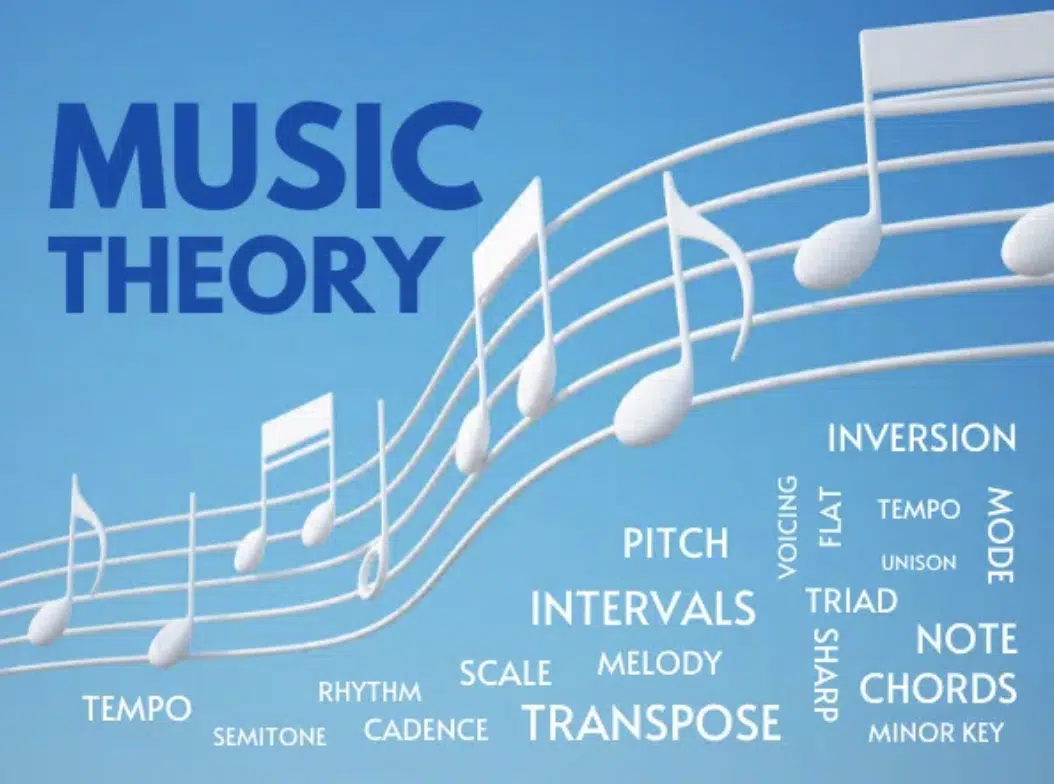
Music theory is the backbone of any music production journey. Understanding the fundamentals will empower you to create more dynamic and engaging tracks.
Some essential concepts you’ll want to ensure your future Theory courses include are harmony, rhythm, melody, scales and chords.
Additionally, understanding rhythmic concepts such as time signatures, note durations, and syncopation will enable you to craft unique and compelling beats.
Mastering these fundamental Theory concepts will provide you with a strong foundation for building your music production skills.
So, if you’re first starting out, you should search for Theory courses that can help you get a firm understanding of this concept.
Music Theory Courses: Top Picks
When searching for the right Theory course, pay attention to the instructor’s expertise, course structure, materials provided, and feedback from fellow students.
Getting insights into those parameters will be very beneficial moving forward.
Here are a few noteworthy options to consider:
This course focuses on Theory specifically tailored to electronic music production. It covers topics such as scales, chords, and harmonies, with hands-on examples using popular digital audio workstations (DAWs).
- Fundamentals of Music Theory by Coursera
Offered in partnership with the University of Edinburgh, this course provides a comprehensive introduction to Theory. This includes notation, harmony, and music analysis. It caters to a wide range of musical genres and is suitable for beginners and intermediate learners.
- Music Theory 101 by Berklee Online
This course, taught by instructors from the prestigious Berklee College of Music. It covers a wide range of topics, from reading sheet music to understanding harmony and melody. It’s perfect for those looking to gain a solid foundation in music theory.
Music Composition Courses

Music composition is the creative process of developing original musical ideas and combining them into a cohesive piece.
This involves understanding song structure, melody, harmony, and arrangement.
Some common techniques employed by successful composers include counterpoint, motif development, incorporating dynamics and articulation.
For example, counterpoint is the technique of combining independent melodic lines to create a harmonically rich and engaging texture.
So, if you’re looking to create intricate and memorable compositions, finding a music production course in this particular subject is key.
Best Online Courses for Music Composition
When selecting a music composition course, consider factors such as the course’s focus, the instructor’s background, available resources, and student reviews.
Here are a few top-rated music composition courses to explore:
- Orchestration for Film and TV by ThinkSpace Education
This focuses on orchestration techniques specifically for film and television scores. It covers topics such as orchestral layout, instrumentation, and scoring techniques, with hands-on projects to help you apply your learning.
- Songwriting: Writing the Lyrics by Coursera
Offered in partnership with Berklee College of Music, this course covers the essentials of lyric writing, including song structure, rhyme schemes, and storytelling techniques. It’s perfect for songwriters looking to improve their lyric writing skills.
This course, also offered by Berklee College of Music, teaches the fundamentals of music composition, including melodies, harmonies, and rhythm. You’ll learn to create and develop your own original compositions through a series of practical exercises.
Music Industry & Music Business Courses
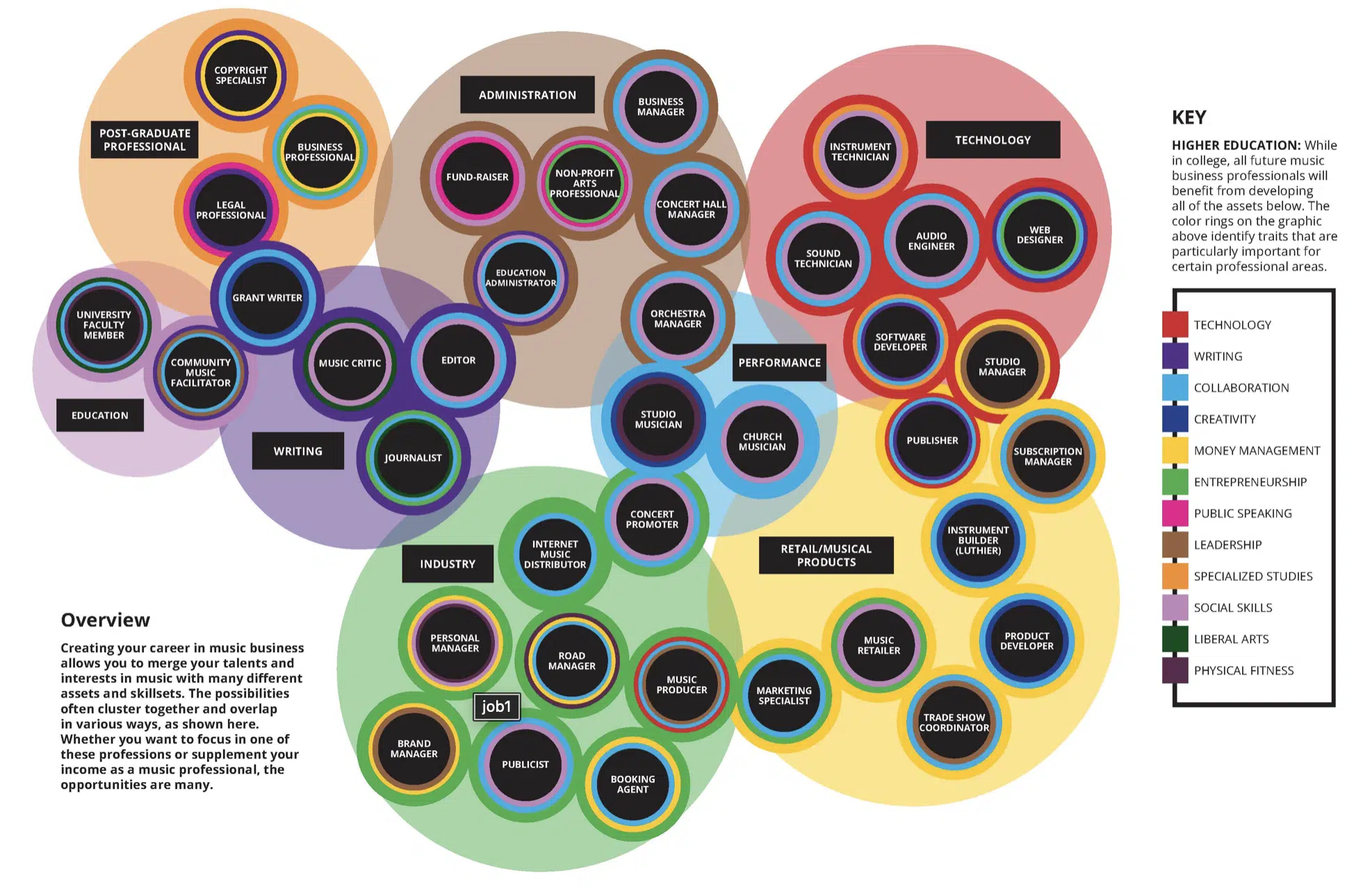
Navigating the music industry can be a daunting task, but it’s crucial for any aspiring music producer.
Having a solid understanding of the industry’s inner workings will help you make informed decisions regarding your course choices.
Key areas to explore include music publishing, royalties, copyright, contracts, marketing, and promotion.
For example, understanding the differences between mechanical royalties and performance royalties will help you maximize your income as a music producer.
Top Music Business Courses
To gain a comprehensive understanding of the music business, consider enrolling in one of these highly-rated courses:
- Music Business Foundations by Coursera
This course, offered in partnership with Berklee College of Music, provides a solid foundation in key aspects of the music business. It emphasizes subjects such as royalties, publishing, contracts, and marketing.
- Understanding The Music Business by Deadmau5
Taught by industry veteran Deadmau5, this course offers an insider’s perspective on producing professional sounding music and building a successful career in the music industry.
It covers topics such as recording, production, marketing, music production software, and touring.
- Transform Your Music Career: From Passion to Profession by Skillshare
This course explores the modern landscape of the music industry.
It focuses on everything from building a plan to building your brand and releasing your music. If you’re looking to breakthrough in the music industry, this course is amazing.
Sound Design and Sound Engineering Courses
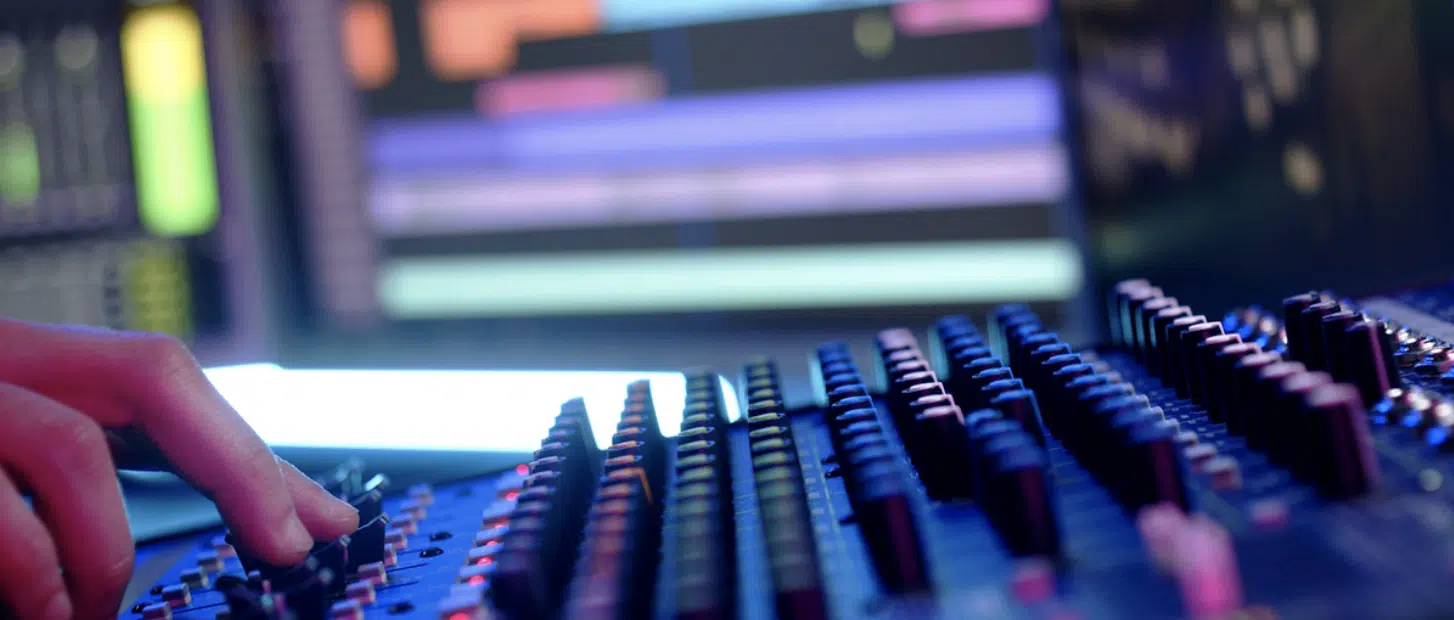
Sound design is the art of creating and manipulating audio elements to enhance a musical composition, film, video game, or other media.
As a music producer, having a strong grasp of sound design principles can help you create unique music and impactful sonic textures.
Some fundamental concepts in sound design include:
- Synthesis
Understanding the basics of subtractive synthesis, additive synthesis, wavetable synthesis, and granular synthesis can enable you to create new and unique sounds.
- Sampling
Manipulating and editing intriguing samples can breathe new life into existing recordings and add a distinct flavor to your music.
- Effects Processing
Familiarity with common audio effects like reverb, delay, distortion, and modulation can enhance your tracks, create depth and space, and help you mix music better.
Courses For Sound Design & Sound Engineering
Sound engineering focuses on the technical aspects of recording, mixing, and mastering audio.
It involves capturing high-quality recordings, balancing levels, and applying EQ and compression to create a polished final product.
When choosing a sound design or engineering course, consider factors such as the course’s focus, the instructor’s experience, and available resources.
Some top-rated courses include:
- Electronic Music Production and Sound Design by Berklee Online
This course covers the fundamentals of sound and synthesis techniques, focusing on electronic music production.
Whether you are a performing electronic musician with recording experience or a newcomer looking to fill in gaps in your knowledge, this course is great.
- Ultimate Sound Design Complete: Mastering Sound Design by Skillshare
This course focuses on all the fundamentals of sound design and synthesis.
It can provide you with all the necessary skills that you’ll need to embark on your sound design journey.
Electronic Music Production Courses
EDM involves creating and manipulating sounds using a DAW, synthesizers, drum machines, and other electronic instruments.
Mastering the techniques specific to producing electronic music can help you craft unique and innovative tracks.
Some popular EDM production techniques include:
MIDI Programming 一 Using MIDI to sequence and control virtual instruments, synths, and drum machines enables you to create complex arrangements and edit them with ease.

Sound Design and Synthesis 一 Experimenting with different synthesis methods and sound manipulation techniques can help you develop your signature sound.

Automation 一 Employing automation in your DAW allows you to create dynamic changes in volume, panning, and effects processing throughout your track.

I thought it would be remiss to not mention FL Studio when talking about music production for EDM, so here’s a quick overview.
FL Studio is a popular digital audio workstation used for creating EDM, known for its user-friendly interface and powerful features.
It offers a range of built-in instruments and effects, as well as support for third-party plugins.
Some key features of FL Studio that make it a go-to choice for electronic music producers include:
- Step Sequencer 一 FL Studio’s intuitive step sequencer allows for quick and easy programming of beats and patterns.
- Piano Roll 一 The piano roll editor enables precise MIDI editing and composition, including advanced features like slide notes and ghost notes.
- Mixer and Effects Routing 一 FL Studio’s flexible mixer and routing options allow you to create complex chains of effects and process multiple tracks simultaneously.
Best Online Courses for Electronic Music Production
When looking for EDM courses, consider factors like the course’s focus, the instructor’s experience, and available resources.
Here are a few top-rated courses to consider:
This course teaches EDM techniques using Ableton Live, covering topics such as MIDI programming, sound manipulation, and automation.
If you’re super into EDM, or you’d like to be, this is an advantageous and intriguing choice.
- Deadmau5 Teaches Electronic Music Production by MasterClass
Electronic music superstar Deadmau5 shares his insights and techniques for creating electronic music.
With this course, you’ll learn how to create your own music without spending money on expensive gear and discover the steps needed to compose electronic dance music, from building melodic structures to incorporating beats.
Mixing & Audio Production Courses
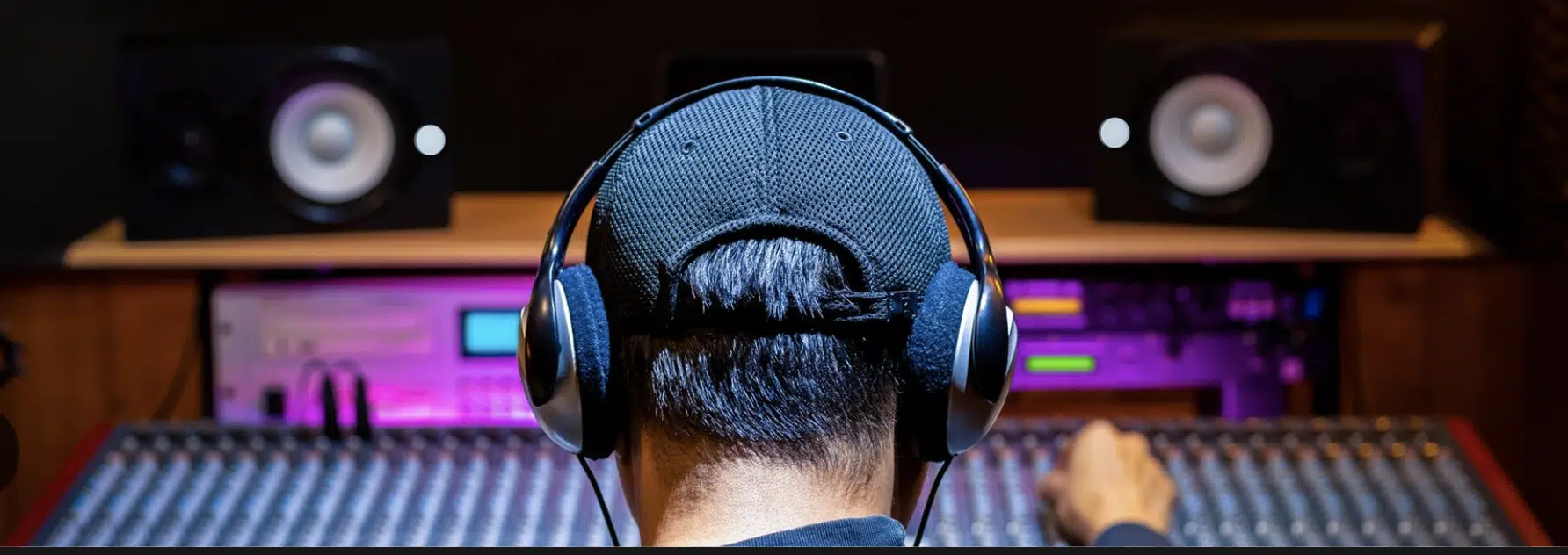
Audio mixing is the process of blending individual audio tracks together to create a and balanced final mix.
Mastering various mixing techniques can help you achieve professional-sounding tracks that stand out. Some essential audio production mixing techniques include:
Balancing Levels 一 Adjusting the volume of each track to create a mix that sounds balanced and allows each element to be heard clearly.
EQ (Equalization) 一 Using EQ to shape the tonal balance of your mix, removing unwanted frequencies and emphasizing the most important elements of each track.
Compression 一 Applying compression to control the dynamic range of individual tracks or the overall mix, providing a more polished and consistent sound.
Stereo Imaging 一 Manipulating the stereo field to create depth and space in your mix, giving each element its own place in the soundstage.
Audio Production Software
Audio production software is an essential tool for music producers.
These programs offer a range of features and capabilities, such as recording, editing, and mixing audio. As well as hosting virtual instruments and effects plugins.
Some popular DAWs include:
1. Pro Tools 一 An industry-standard DAW used by professionals in recording studios worldwide, offering advanced recording, editing, mixing and mastering capabilities.
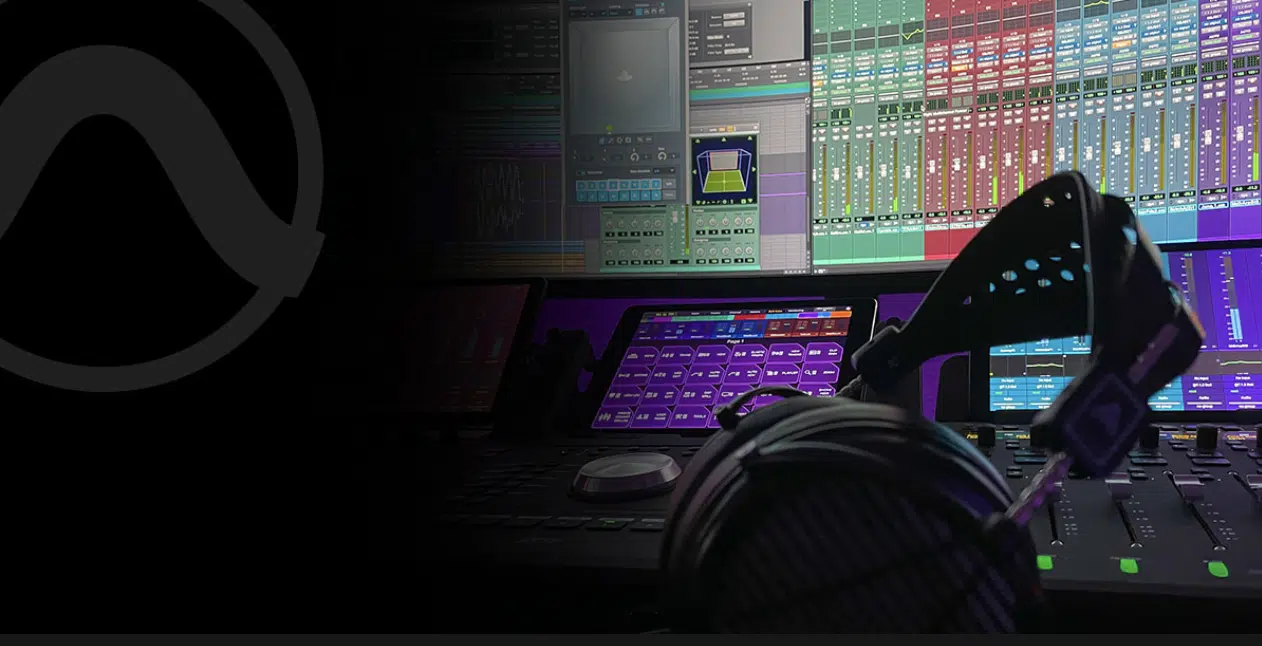
2. Logic Pro 一 A powerful and user-friendly music production software exclusive to macOS, featuring a wide range of built-in instruments and effects, as well as advanced MIDI editing tools.
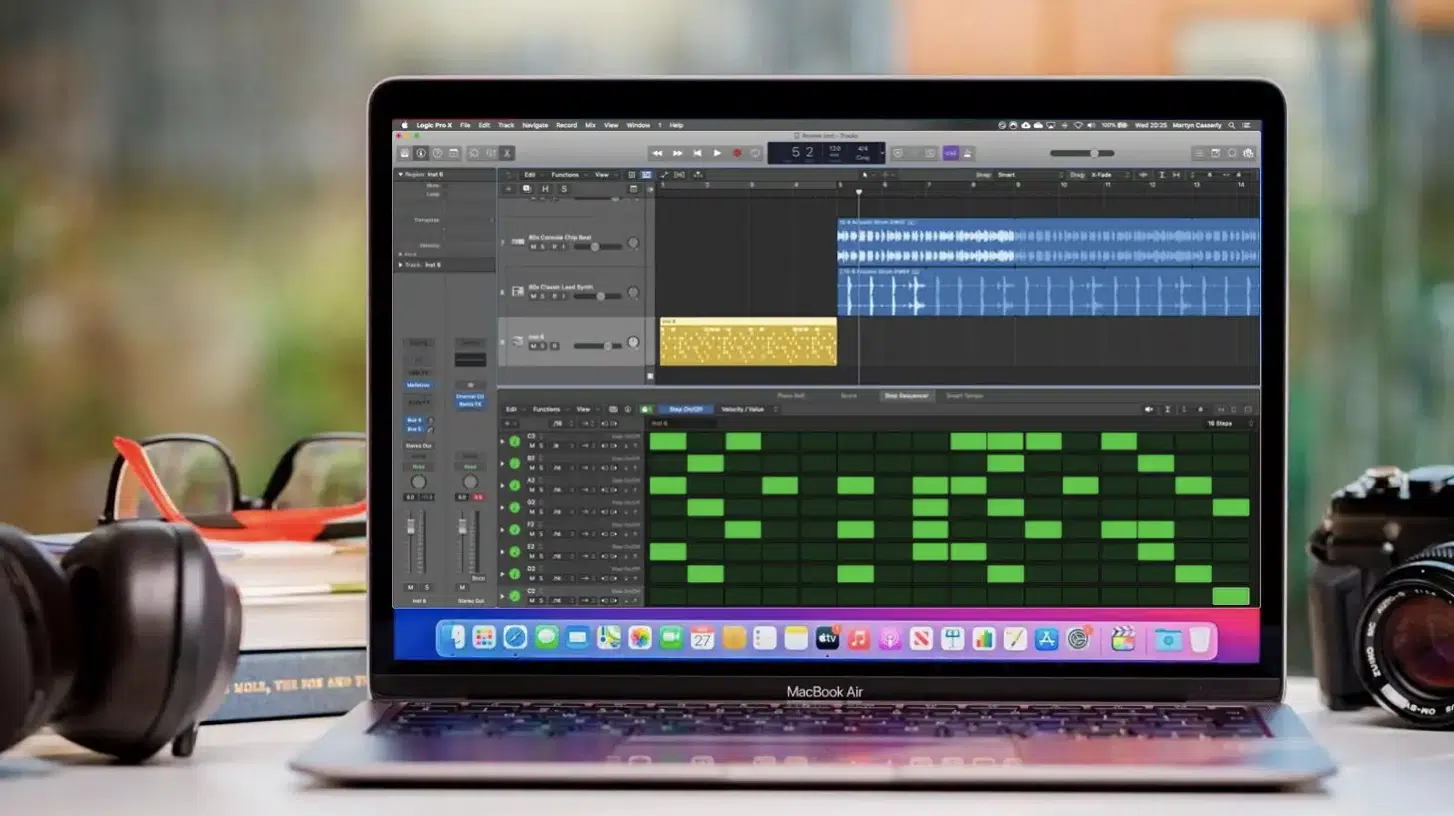
3. Ableton Live 一 A versatile DAW popular among electronic music producers, offering unique features like Session View and extensive support for live performance.
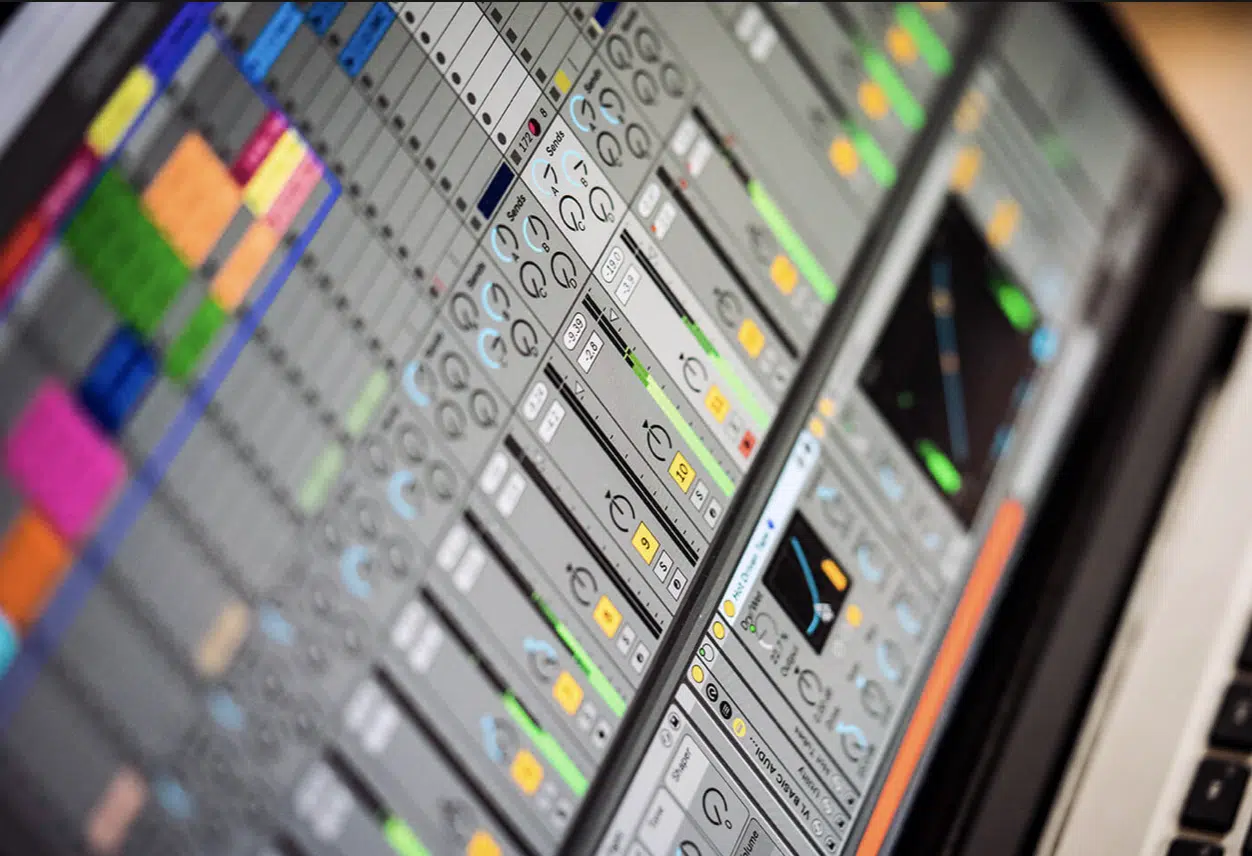
Best Online Courses for Audio Mixing & Production
When selecting an audio mixing and production course, consider factors such as the course’s focus, the instructor’s experience, and available resources.
Some top-rated courses for Audio Mixing and Production include:
- Mixing and Mastering with Pro Tools by Berklee Online
This course provides a comprehensive look at mixing and mastering techniques using Pro Tools, covering topics such as EQ, compression, and stereo imaging.
- Music Production in Logic Pro X by Udemy
This course teaches music production techniques using Logic Pro X, including recording, editing, mixing, and mastering. It also include professional tips, tricks, and technique that can excel your workflow in Logic Pro X.
- Ableton Live Fundamentals: Music Production Essentials by Skillshare
This extensive course covers the essentials of music production using Ableton Live, from recording and editing to mixing and automation.
Hip-Hop Music Production Courses
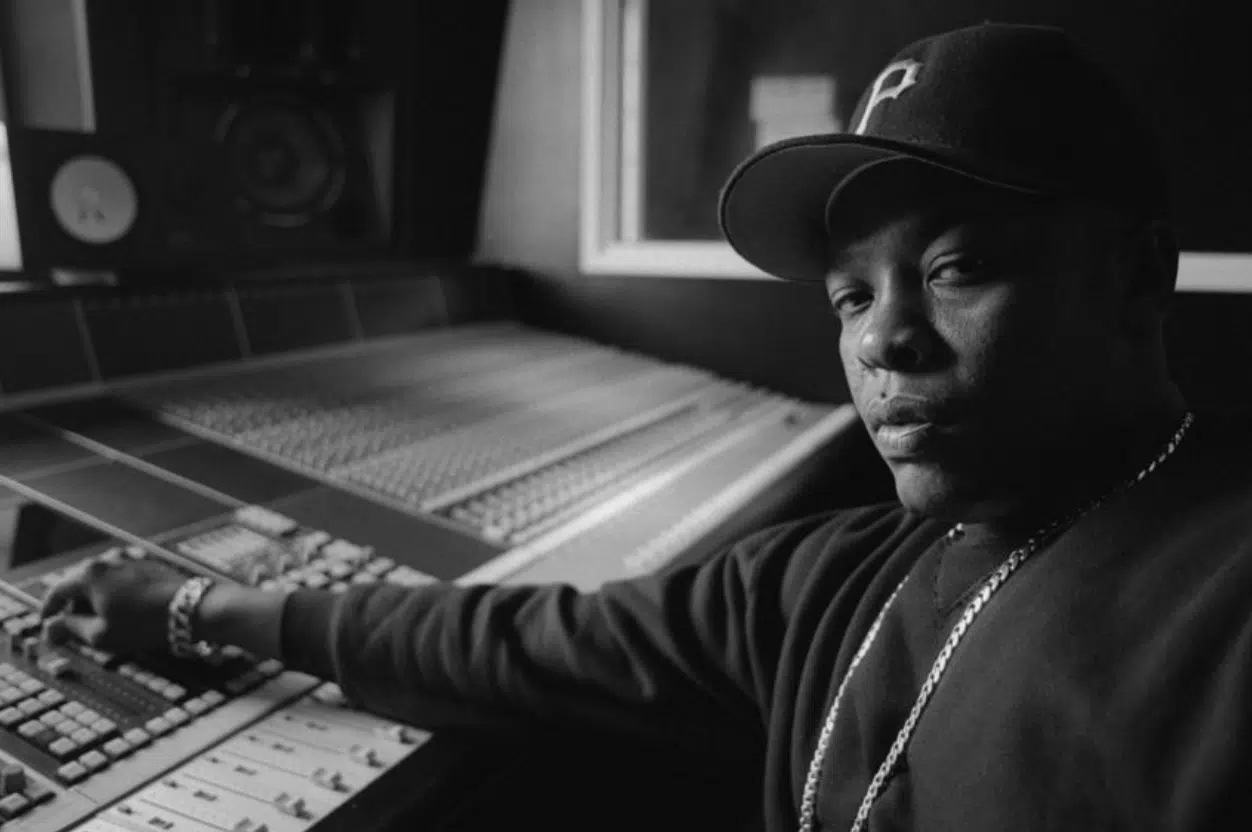
Hip-hop production involves a unique set of skills and techniques tailored to the genre’s distinct characteristics. To excel in hip-hop production, it’s essential to master the following elements:
- Beat Making 一 Crafting drum patterns and grooves that form the foundation of your hip-hop tracks. This often involves using samples, drum machines, and virtual instruments.
- Sampling 一 Digging through vinyl records, CDs, or digital libraries to find unique samples that can be chopped, looped, and manipulated to create new beats and melodies.
- Sound Design 一 Sculpting and layering sounds to create a unique sonic palette that complements the genre’s aesthetics, from gritty, lo-fi textures to polished, modern tones.
- Arrangement 一 Structuring your track to support the flow of verses, choruses, and instrumental breaks, while leaving space for vocals and other elements.
So, if you’re looking for some good hip-hop online music production courses, it’s essential that they focus on some (or all) of those concepts.
Best Online Courses for Hip-Hop Production
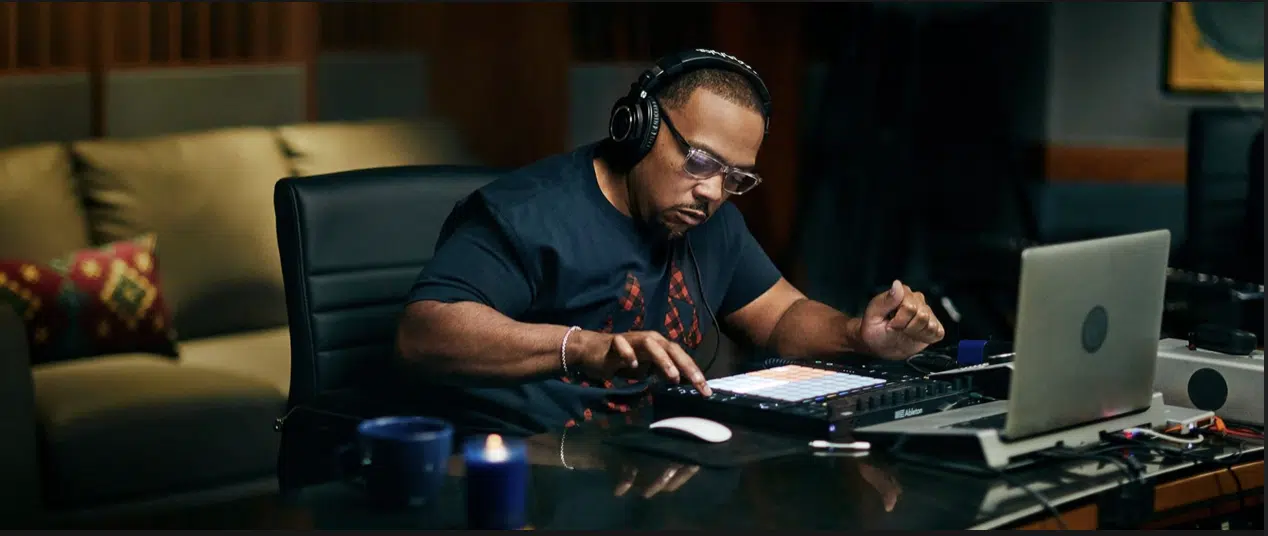
When looking for hip-hop production courses, consider factors like the course’s focus, the instructor’s experience, and available resources.
Here are a few top-rated courses to consider:
These advantageous courses range from producing beats, melodies, and chord progressions to how to master FL Studio and replicate popular songs.
- Timbaland Teaches Producing by MasterClass
In this course, legendary hip-hop producer Timbaland shares his insights and techniques for creating iconic beats and memorable tracks.
You’ll discover how to create catchy beats and melodies using music software and understand how to collaborate with vocalists, layer new tracks, and create hooks that stick.
- Make Hip-Hop Beats that BANG by Udemy
This course covers the essentials of hip-hop beat making, from drum programming and sample chopping to sound design and arrangement.
Learning from Industry Professionals: The Value of Expert Guidance
Learning from industry professionals offers invaluable insights and guidance that can elevate your music production skills to new heights.
By tapping into the knowledge and experience of established producers, you can gain:
- Insider Tips and Tricks 一 Learn techniques and approaches used by top professionals successful tracks and navigate the music industry.
- Real-World Examples 一 Gain access to real projects and case studies that illustrate the application of various production techniques in a professional context.
- Networking Opportunities 一 Connect with industry professionals and like-minded students, which can lead to collaboration and career opportunities down the line.
- Personalized Feedback 一 Receive constructive criticism and tailored advice on your work, helping you identify areas for improvement and further growth.
Top Online Courses Taught by Industry Professionals
When selecting an online music production course, consider those taught by experienced professionals who can provide valuable insights and guidance.
Some highly-rated courses taught by industry professionals include:
Hans Zimmer Teaches Film Scoring by MasterClass
Legendary film composer Hans Zimmer shares his approach to composing and arranging music for film.
This extensive course offers a unique perspective on the creative process from one of the best in his field. And yes, we’re talking about the Hans Zimmer who scored The Dark Knight.
Music Production with Andrew Huang by Monthly
In this course, YouTube music production guru Andrew Huang teaches a comprehensive range of production techniques to help you produce music like a professional.
It ranges from sound design and songwriting to mixing and mastering techniques.
The Best Online Music Production Course of 2023: Unison Beatmaking Secrets
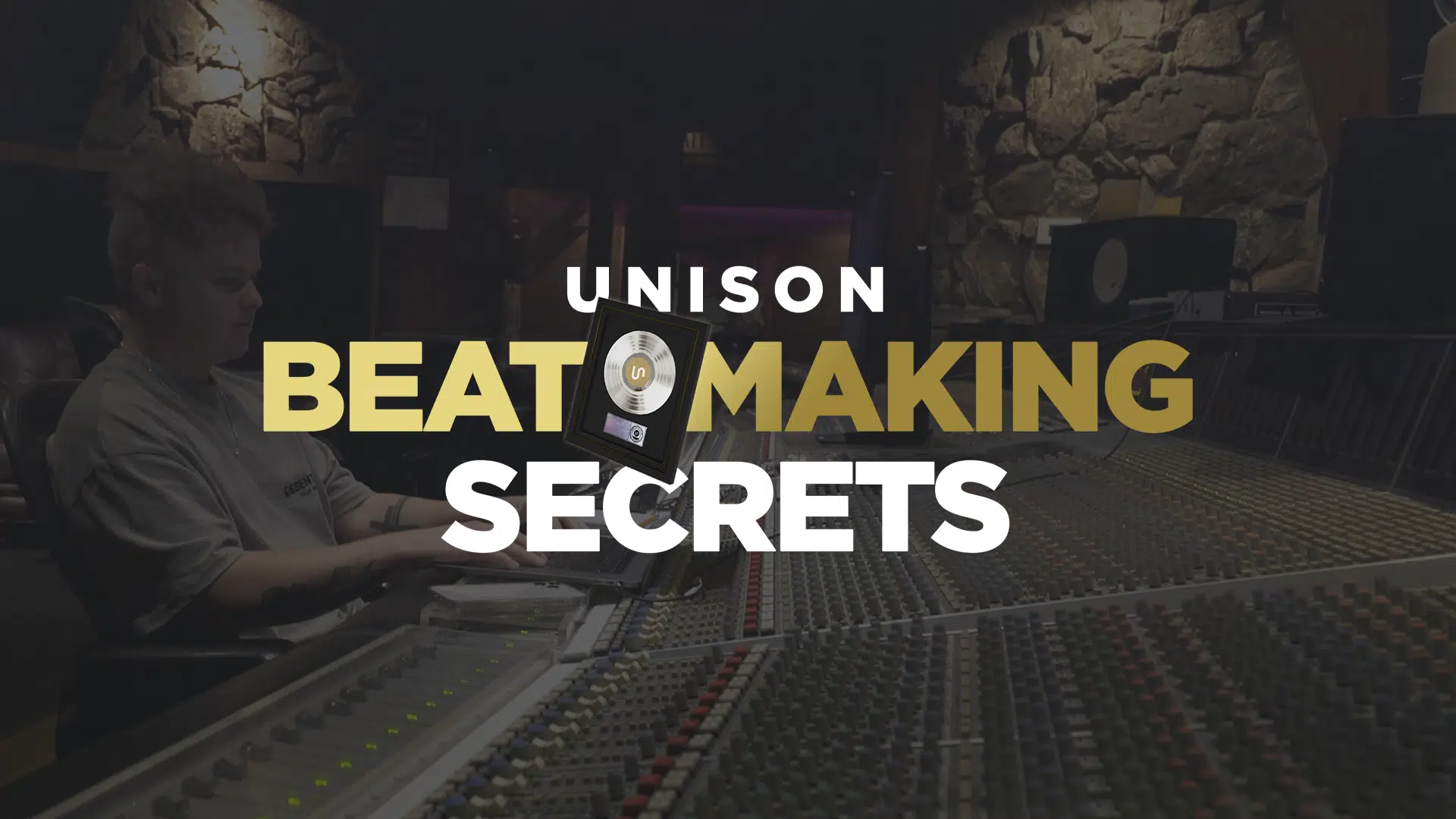
I know what you’re thinking… we only named it the top music production course because it’s our affiliate program, but you couldn’t be more wrong.
The Unison Beatmaking Secrets course is not your regular production course. It’s the world’s first and only start-to-finish system for making placement-worthy beats.
Platinum producer LMC 一 who has worked with legends like DaBaby, Gucci Mane, NLE Choppa, etc. 一 reveals all the industry secrets to creating hit beats and getting placements.
Unison Beatmaking Secrets will generate proven results if you don’t have time or even if you haven’t sold one single beat online yet.
This course, which contains over 8 hours of video training, is broken down into 5 unique modules:
-
Mindset & Creative Process
In this module you’ll be learning why 99% of beatmakers ultimately fail and can’t seem to breakthrough.
You’ll receive the power to shine under any situation, whether it’s making beats live in front of an artist, sending out beat packs or closing an exclusive beat sale.
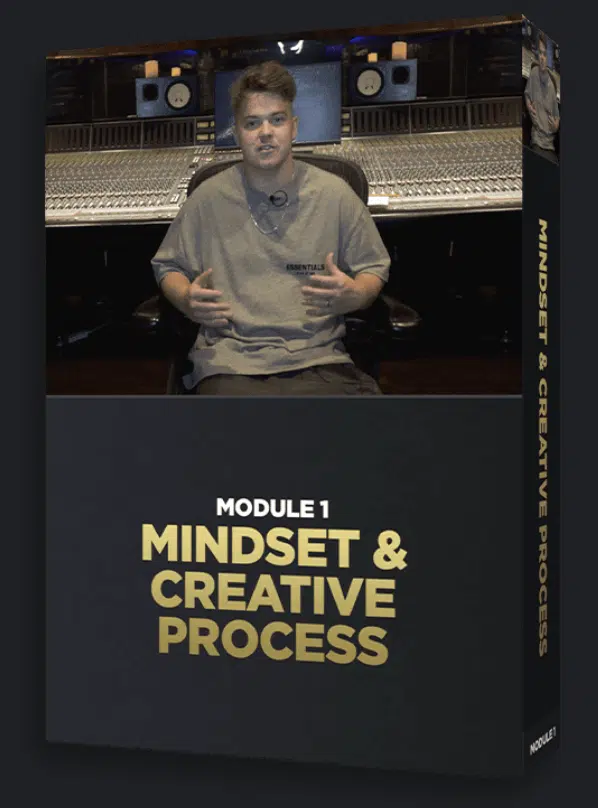
-
Sound Selection & Sound Design
In this module you’ll get access to the right way to use synths, samples & MIDI.
As well as loopmaking and manipulation tricks, and how to make absolute fire drum/loop kits.
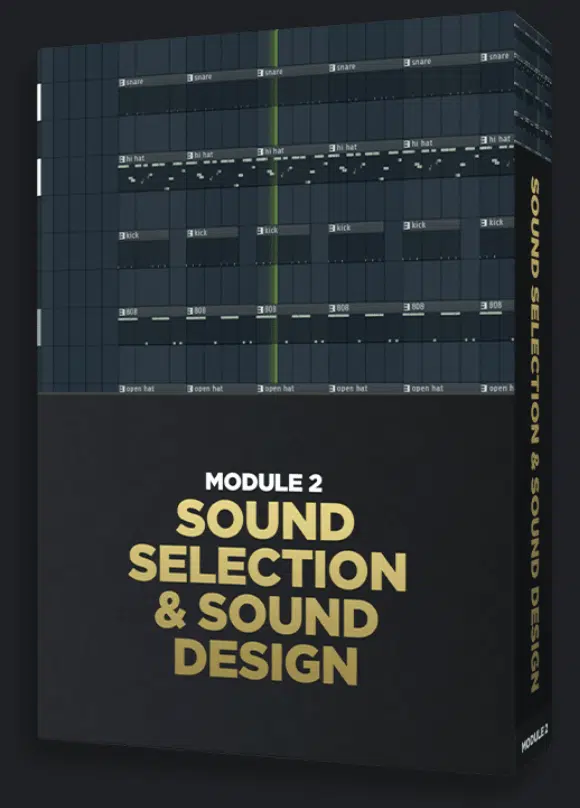
-
Arrangement
In this module, you’ll discover the right way to arrange your beats so there’s room for vocals, and big artists get excited to jump on them.
Valuable insights into melodies, chord progressions, 808 and drum patterns will be shone your way.
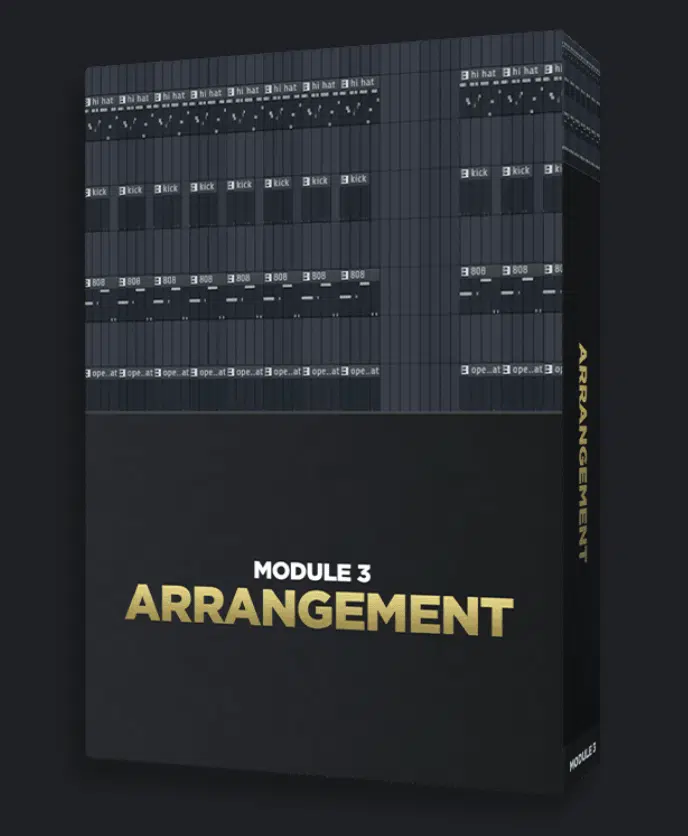
- Mixing & Mastering
In this module you’ll uncover the only 5 plug & play processing chains you’ll ever need and specific mixing method for vocals, placements, clients and artists.
You’ll be able to skip years of frustration by learning the elite mastering chain used by platinum producers. Once you’ve completed the program, you’ll never have a problem making beats or getting placements again.
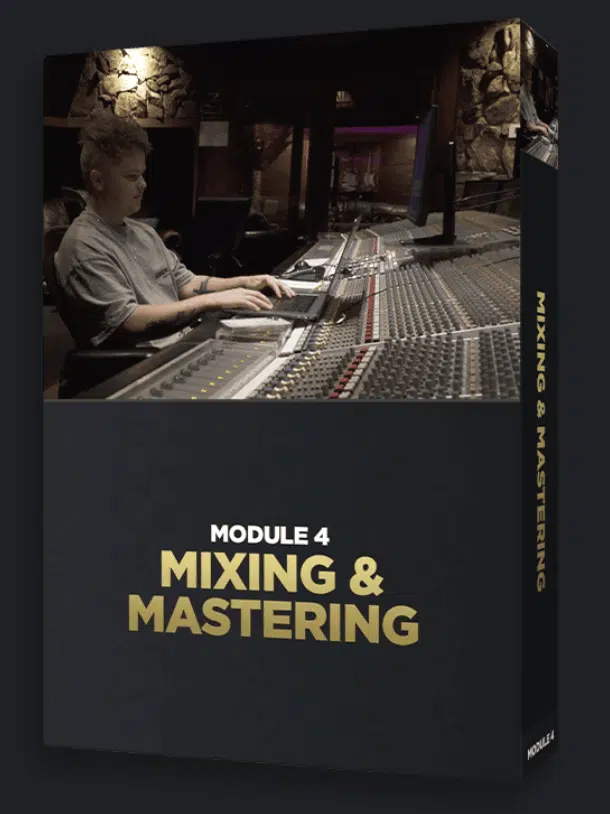
- Marketing, Branding, and Business
In this module you’ll learn sneaky manager and record label contract tricks. Being aware of these methods can save you so much money in the long term.
Plus, enthralling “Brand Explosion Methods” that will blow up your social media following, get you noticed by big artists and powerfully position you in the competitive beatmaking marketplace.
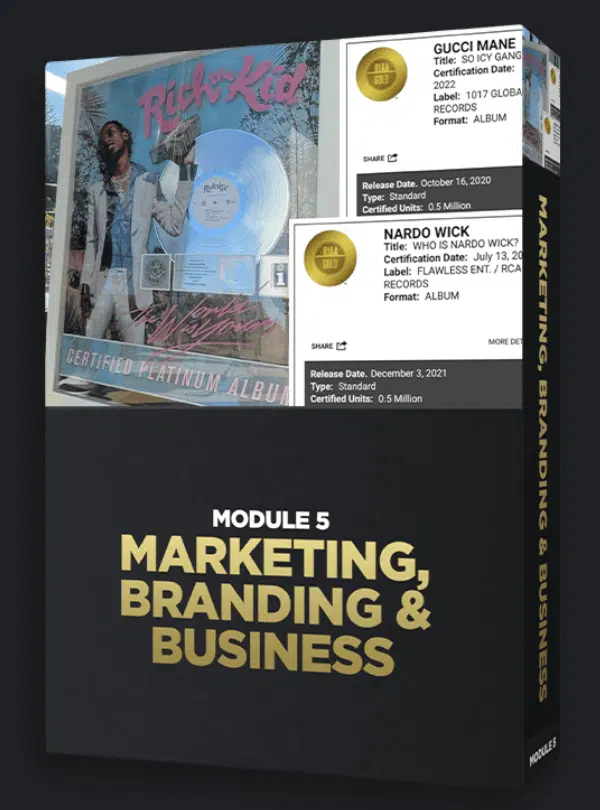
Pros & Cons of Online Music Production Courses
PROS:
Online music production courses offer several advantages, including:
- Flexibility 一 Learn at your own pace and on your own schedule, making it easier to balance your music education with work or other commitments.
- Accessibility 一 Access course materials from anywhere, anytime, as long as you have an internet connection.
- Variety 一 Choose from a wide range of courses covering different aspects of music production, from beginner to advanced levels.
- Affordability 一 Online music production courses are often more affordable than traditional in-person classes or workshops.
CONS:
Despite their many advantages, online music production courses also have some drawbacks:
- Limited Interaction 一 The online format may limit opportunities for face-to-face interactions with instructors and fellow students.
- Self-Discipline 一 Learning online requires a high level of self-discipline and motivation to stay on track and complete coursework.
- Quality Control 一 The quality of an online music production course from vary from one to the other. It’s essential to research and choose reputable platforms and instructors.
Before you make a dedicated commitment to a music production course, make sure you’ll be able to follow through without getting overwhelmed or underwhelmed.
Final Thoughts
So there you have it, fellow music producers – a thrilling odyssey through the captivating realm of Music Production Courses.
As we’ve journeyed together, we’ve explored diverse courses, soaked up expert insights, and delved into the factors that make a course truly exceptional.
Armed with this knowledge, you’re now ready to embark on your quest to find the perfect course that fuels your passion and elevates your craft to unimaginable heights.
Remember, the path to greatness is paved with continuous learning and growth.
Embrace the challenges, savor the victories, and let your curiosity be the compass that guides you to the courses that ignite your creativity and transform your music production dreams into reality.
The world awaits your sonic masterpieces, so let it hear yours!
Until next time…






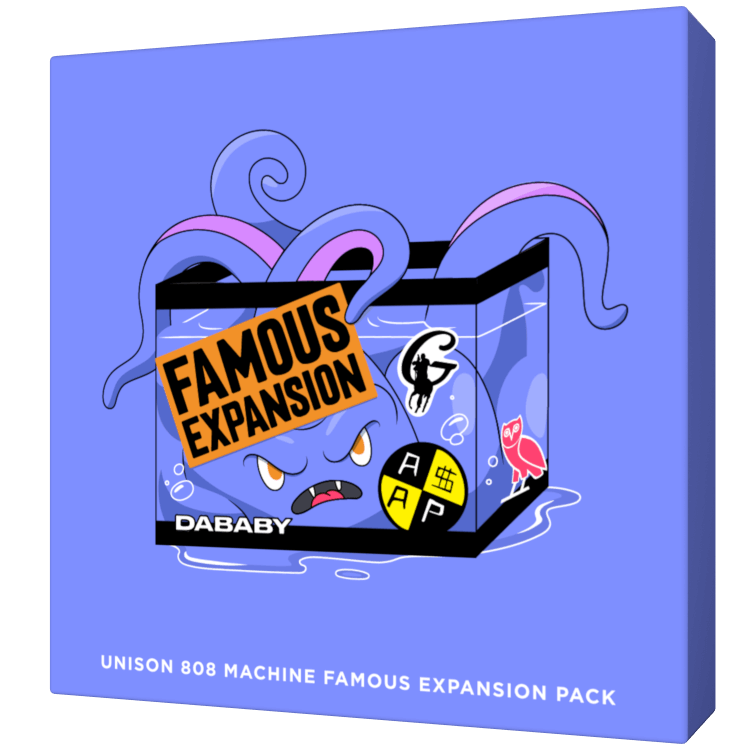
Leave a Reply
You must belogged in to post a comment.